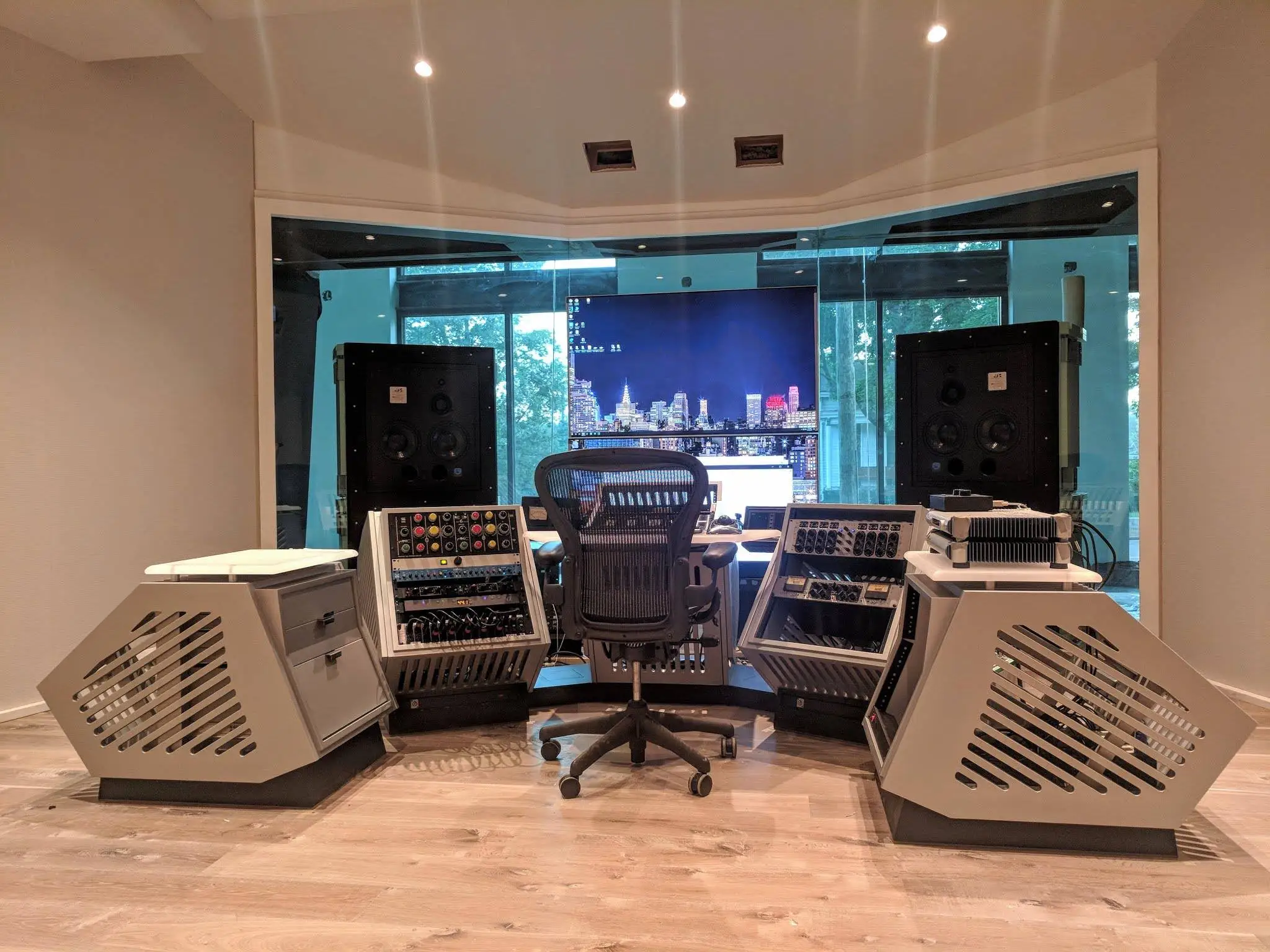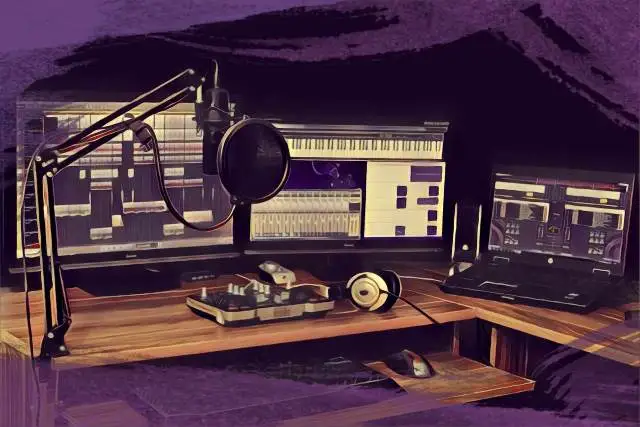AI seems to be everywhere these days. From writing to journalism to art and beyond, it's making a significant leap forward in several different fields. Of course, anyone working in music knows that it's making a big splash in music too, especially in mastering.
AI mastering comes with some great perks like being faster, more consistent, and more easily accessible than hiring a human mastering engineer, which is really starting to shake things up, which begs the question, what does the future of mastering look like in an AI-dominant world?
In this article, we’ll take a look at how AI is changing mastering, the challenges it faces, what it can do, and where it's headed in the future.
The Current State of Mastering
Mastering might be one of the most critical steps in the music production process.
Before your music hits the world, it hits the ears of the final gatekeeper, who tweaks and polishes it to make sure it sounds its best across all playback systems.
Mastering, as we know it, is handled by skilled mastering engineers, who use a potent combination of experience, high-quality equipment, and specialized software to enhance the overall sound quality of mixes, ensure consistency between tracks on an album, and prepare the audio for distribution.
This "traditional" method of mastering emerged in the mid-20th century and became more defined with the advent of the LP in the late 1940s and 1950s, when engineers began to focus on optimizing the sound for vinyl records.

Many consider Sterling Sound to be the first legitimate mastering house, which was established in 1968 in New York City. In many ways, it set industry standards through working with many high-profile artists, including The Beatles, Led Zeppelin, U2, Queen, Nirvana, Coldplay, Adele, and so many more.
Of course, since mastering's introduction in the 20th century, a lot has change.
Over the past decade or so, there have been some key developments in AI Mastering.
For starters, musicians now have access to several automated mastering services , eMastered being one of the largest one. These platforms offer online AI mastering services that provide instant results. As a musician, you can simply upload your tracks and get mastered versions in a matter of minutes.
The beauty of AI in mastering is that just about anyone can achieve high-quality sound without needing expensive studio time. However, it also raises questions about the future role of human engineers and the potential for AI to truly understand and replicate the artistic subtleties that come with human touch.
Before we get into that, it's important to understand how AI mastering services are evolving.
The Ever-Evolving Use of AI In Mastering
AI technology has made significant strides in recent years, and many companies are using innovative machine learning algorithms, neural networks, and deep learning to help AI perform complex audio processing tasks with remarkable efficiency.
Machine learning algorithms excel at recognizing patterns in large datasets.
In mastering, these algorithms are fed a vast amount of music data to analyze in order to understand the characteristics of well-mastered tracks. As a result, they have the ability to identify optimal settings for EQ, compression, and other audio processing tools based on patterns they've learned.
These algorithms also have the ability to adapt to different genres and styles of music. If you upload a modern dubstep track to an AI mastering platform, it'll make genre-specific adjustments to ensure the mastered output retains the intended artistic style.

We also have neural networks, which are quite effective in processing the complex relationships between different audio characteristics, such as frequency, amplitude, and phase.
Lastly, we have deep learning models, which use more advanced information found in artificial neural networks.
Here at eMastered, we use deep learning models trained on a diverse set of professionally mastered tracks to make precise adjustments to EQ, compression, and stereo imaging.
There are several benefits to using AI mastering services like eMastered including:
- Efficiency: AI-driven platforms can master tracks in a fraction of the time it would take a human engineer, making them ideal for quick turnarounds.
- Accessibility : These platforms provide high-quality results at a lower cost, which is especially beneficial for indie artists.
- Consistency: With full reliance on learned patterns and data, AI mastering platforms offer consistent quality. Unlike a human engineer, they won't have "off days."
It's worth mentioning, of course, that these benefits have counterpart challenges.
Future Challenges for AI Mastering
It's no question that many AI music-making services work extremely well. That doesn't mean they're perfect, however, and even as a company that has developed a successful AI mastering algorithm, we feel it's best to be transparent about those challenges.
Concerns About AI Replacing Human Mastering Engineers
One of the primary challenges of AI in mastering is the thought that we may lose the human touch.
I know many mastering engineers who have worked and studied for years in order to be able to bring a wealth of experience, intuition, and artistic sensibility to the table. They're great at what they do and can make subjective decisions that reflect their personal style and the artist's vision.
The note on "style" is key, since, just like producers and beat makers have their own recognizable characteristics, so do many mastering engineers.
AI, while highly efficient, still lacks the ability to understand the emotional and creative nuances of music. It knows only what it is taught, and can't make decisions based on the fly that aren't built into its programming. As a result, many people are concerned that music will eventually reach a homogenous state, where everything kind of sounds, well, the same.
If we're overly-reliant on AI, we won't get the unique character and soul that a skilled engineer can impart into a track.
Concerns About Technical Limitations
AI has seen its fair share of technical advancements over the years, though there are still some well-known limitations.
Some AI algorithms, for example, can struggle with tracks that have unconventional structures or highly complex audio elements. For example, let's take a more experimental rock track that has all of the elements of a traditional rock song, except for a grinding synth bass that's supposed to act as a solid electronic foundation for the rest of the song.
AI won't be able to discern the difference between that synth bass, a regular bass, or any other low-end instrument for that matter. It might be able to take a good guess, and it might get it right, but there's no way to assure that.
Taking in the fact that an AI mastering algorithm might think it's a traditional rock track, it would mix it like any other rock track, compressing the low-end and pushing it back to make room for the thickness of the lower mids and the punch of the drums. Of course, from the standpoint of your artistic vision, you might want it to be mastered more like an EDM or hip-hop track.
While you can make overarching suggestions on some AI mastering platforms, in the end, human engineers are the only ones who can make ultra-subtle adjustments based on their trained ears and specific artistic intentions.
We're hoping that in the future, AI systems can be trained beyond existing data in order to adapt well to entirely new genres or styles that deviate significantly from the norm.
Concerns About AI's Role in the Creative Industry
Lastly, and for good reason, the rise of AI in mastering raises plenty of concerns about job displacement .
AI can handle several technical tasks in an instant, and at a fraction of the cost, which ultimately reduces the need for human engineers.
However, it can also create new opportunities. For example, AI can free up a mastering engineer to focus more on creative aspects and less on repetitive tasks like loudness normalization or noise reduction.
Now, we'll be the first to say that we don't ever think AI will completely replace the human mastering process.
It's a much more nuanced process than many believe. For example, an AI won't know that an intro, verse, or chorus require different treatment, as it won't be able to distinguish those different parts of the track. It also won't be able to guess whether those clicks or pops in your final mix actually belong there or were left on accident.
An actual mastering engineer would likely call you up and say, "Hey, if you want the best results, bounce the mix again and take care of these issues."
What Does AI Mastering Look Like In the Future?
As AI mastering tools become more accessible to a wider audience, including independent artists and small studios, so will their use.
It's hard to argue the ease and affordability many of these tools offer.
Professional mastering services aren't affordable to some, and why should that barrier to entry in creativity exist? In reality, AI mastering is leveling the playing field for independent musicians.
We'll likely see more and more cloud-based solutions appear as time goes on, though one thing we believe will be most prominent is the hybrid approach .
Many mastering engineers are starting to combine their own expertise with AI, allowing AI to handle initial technical tasks, so they can focus on creative refinement. Many industry professionals support this model, viewing AI as a tool to enhance, rather than replace, human creativity.
There is also a hope that AI systems will develop stronger user profiles that can learn and adapt to the preferences of specific engineers and artists, providing highly-customized mastering suggestions.
Will AI Replace Human Mastering Engineers?
As I noted throughout the article, there are going to be instances where using artificial intelligence in the mastering process will be more suitable or beneficial than hiring a human mastering engineer. If you're on a budget, need a master quickly, or just want to test out what your mix might sound like as a finalized product, using an AI mastering service like eMastered is certainly the way to go.
On the other hand, if you want the flexibility to be able to provide or receive feedback, or you want an ultra-specific sound, which might come from a particular set of characteristics or analog equipment, going with a skilled mastering engineer would be a better option.
Even down the line, I don't believe AI will ever replace traditional mastering. Instead, I envision a future where the two work side by side, allowing for a smaller barrier to entry into the music industry.





